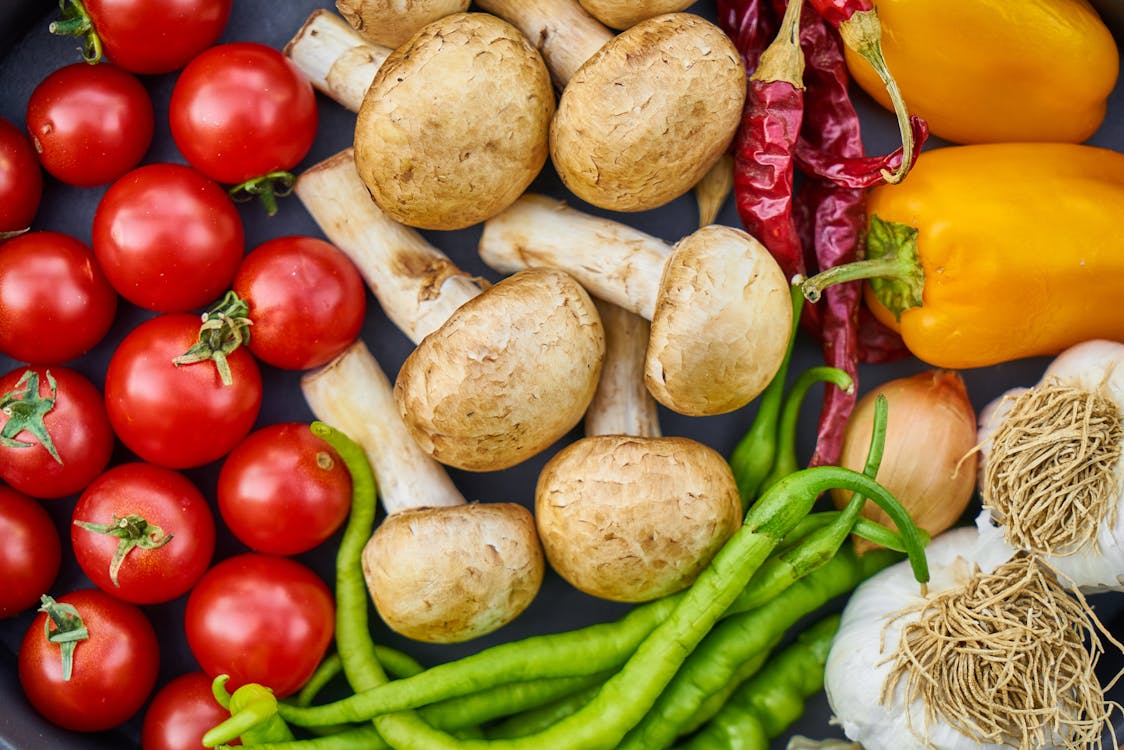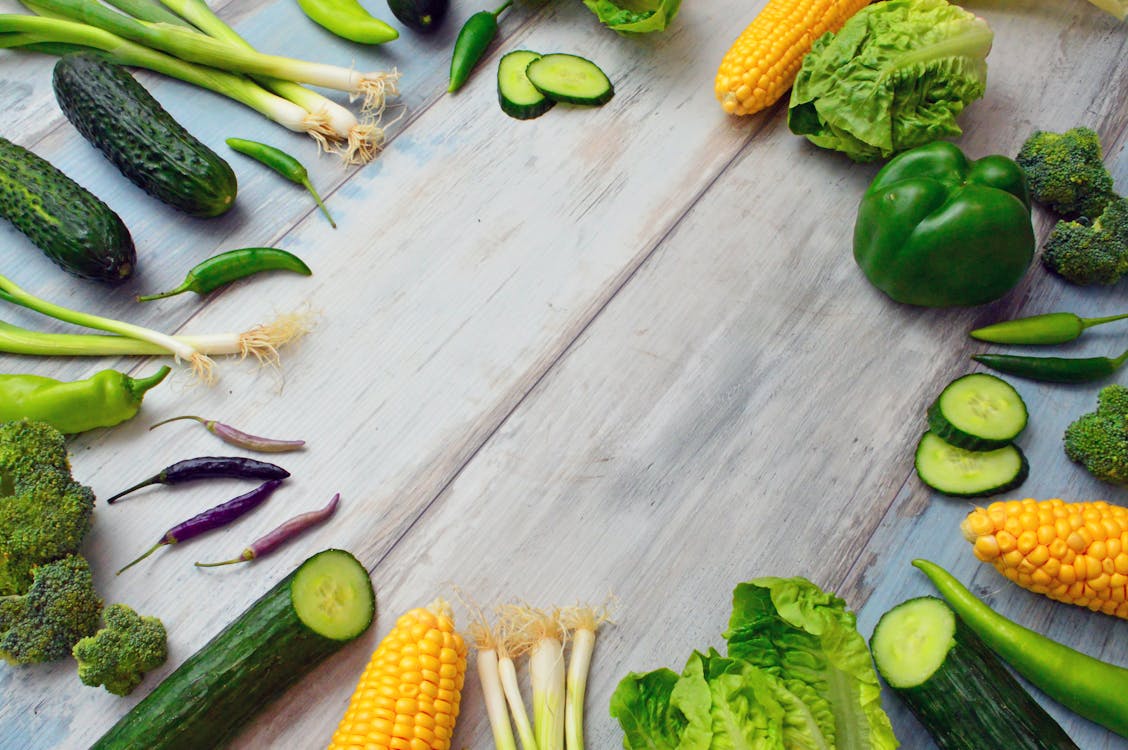Vegetables are an essential part of a healthy and balanced diet. They provide vitamins, minerals, antioxidants, and fiber that can support your overall health and well-being. However, not all vegetables are the same. Some vegetables are higher in starch, which is a type of carbohydrate that can raise your blood sugar levels and contribute to weight gain. These include potatoes, corn, peas, beans, and winter squash. On the other hand, some vegetables are lower in starch, which means they have fewer calories and carbohydrates, but more water and nutrients. These include non-starchy vegetables and leafy greens, such as broccoli, cauliflower, carrots, celery, cucumber, lettuce, spinach, kale, and many more.
Non-starchy vegetables and leafy greens have many benefits for your health, such as:

- Boosting your immune system: Non-starchy vegetables and leafy greens are rich in vitamin C, which is a powerful antioxidant that can protect your cells from damage and infection. Vitamin C can also help your body produce collagen, which is a protein that can heal your wounds and maintain your skin, bones, and joints. Moreover, non-starchy vegetables and leafy greens contain phytochemicals, such as beta-carotene, lutein, and flavonoids, which are plant compounds that can modulate your immune response and prevent inflammation.
- Lowering your blood pressure: Non-starchy vegetables and leafy greens are high in potassium, which is a mineral that can balance your sodium levels and relax your blood vessels. Potassium can also help your body regulate your fluid and electrolyte balance, which can affect your blood pressure. Furthermore, non-starchy vegetables and leafy greens are low in sodium, which is a mineral that can increase your blood pressure and cause water retention. Therefore, eating more non-starchy vegetables and leafy greens can help you lower your blood pressure and reduce your risk of hypertension, stroke, and kidney disease.
- Improving your digestion: Non-starchy vegetables and leafy greens are high in fiber, which is a type of carbohydrate that can improve your bowel movements and prevent constipation. Fiber can also feed your gut bacteria, which are beneficial microorganisms that can enhance your digestion and immunity. Additionally, non-starchy vegetables and leafy greens are high in water, which can hydrate your body and soften your stools. Therefore, eating more non-starchy vegetables and leafy greens can help you improve your digestion and prevent gastrointestinal disorders, such as irritable bowel syndrome, diverticulitis, and colon cancer.
- Controlling your blood sugar: Non-starchy vegetables and leafy greens are low in carbohydrates, which means they have a minimal impact on your blood sugar levels. Carbohydrates are the main source of energy for your body, but they can also raise your blood sugar levels and trigger your insulin production. Insulin is a hormone that can help your body use or store glucose, which is the simplest form of sugar. However, if you eat too many carbohydrates, especially refined and processed ones, your blood sugar levels can spike and drop, which can cause cravings, hunger, and fatigue. Moreover, if your body cannot produce enough insulin or use it properly, you can develop diabetes, which is a chronic condition that can damage your organs and nerves. Therefore, eating more non-starchy vegetables and leafy greens can help you control your blood sugar levels and prevent or manage diabetes.
- Managing your weight: Non-starchy vegetables and leafy greens are low in calories, which means they can help you reduce your total calorie intake and create a calorie deficit. A calorie deficit is when you burn more calories than you consume, which can lead to weight loss. Non-starchy vegetables and leafy greens are also high in fiber and water, which can help you feel full and satisfied, and reduce your appetite and portion size. Moreover, non-starchy vegetables and leafy greens are high in protein, which is a macronutrient that can boost your metabolism and muscle mass. Therefore, eating more non-starchy vegetables and leafy greens can help you manage your weight and prevent or treat obesity, which is a risk factor for many chronic diseases, such as cardiovascular disease, diabetes, and cancer.
To enjoy the benefits of non-starchy vegetables and leafy greens, you should aim to eat at least five servings of them per day, according to the Dietary Guidelines for Americans. One serving is equivalent to one cup of raw or cooked non-starchy vegetables or leafy greens, or two cups of raw leafy greens. You can also eat more than five servings, as there is no upper limit for non-starchy vegetables and leafy greens, unlike starchy vegetables, which should be limited to three servings per day.
Here are some tips to help you eat more non-starchy vegetables and leafy greens:

- Add them to your breakfast: You can start your day with a nutritious and filling breakfast that includes non-starchy vegetables and leafy greens. For example, you can make an omelet with spinach, mushrooms, and cheese, or a smoothie with kale, banana, and almond milk.
- Snack on them: You can snack on non-starchy vegetables and leafy greens throughout the day to curb your hunger and cravings. For example, you can munch on carrot sticks, celery sticks, or cucumber slices with hummus, salsa, or guacamole, or make a salad with lettuce, tomato, and avocado.
- Mix them with your main dishes: You can mix non-starchy vegetables and leafy greens with your main dishes to increase your volume and variety. For example, you can add broccoli, cauliflower, or zucchini to your pasta, rice, or quinoa, or stir-fry cabbage, bok choy, or kale with your chicken, beef, or tofu.
- Roast them: You can roast non-starchy vegetables and leafy greens to enhance their flavor and texture. For example, you can roast Brussels sprouts, asparagus, or green beans with olive oil, salt, and pepper, or bake kale, collard greens, or Swiss chard chips with olive oil, salt, and paprika.
- Blend them: You can blend non-starchy vegetables and leafy greens to make soups, sauces, or dips. For example, you can blend spinach, basil, and garlic to make pesto, or blend cauliflower, cheese, and milk to make cheese sauce.
Non-starchy vegetables and leafy greens are healthy and delicious foods that can benefit your health in many ways. They can boost your immune system, lower your blood pressure, improve your digestion, control your blood sugar, and manage your weight. You should eat at least five servings of them per day, and try to incorporate them into your meals and snacks. By eating more non-starchy vegetables and leafy greens, you can improve your nutrition and well-being, and prevent or treat many chronic diseases.


